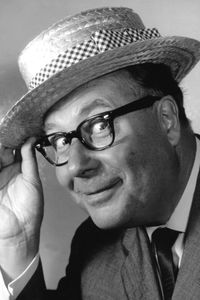Heinz Erhardt, a multifaceted and incredibly talented individual, came into this world in Riga, Latvia, to a father who was a highly accomplished bandmaster, setting the stage for a life filled with music and performance. Unfortunately, his parents' divorce would soon alter the course of his life, leading to a series of moves that would take him to various locations, including St. Petersburg, where he would live with his mother, Riga, where he would stay with his grandparents, and Hannover, where he would reside with his father.
This tumultuous period in his life would see him change schools an astonishing fifteen times, a circumstance that would undoubtedly have a profound impact on his academic and personal development. Despite not ultimately completing his formal education by matriculating, Heinz Erhardt's passion for music would continue to burn brightly, leading him to pursue musical studies at the prestigious Leipzig Conservatory under the guidance of the renowned Professor Robert Teichmüller.
Erhardt's professional journey began with a series of unconventional ventures, initially involving the sale of pianos and performances in cabarets, all set against the backdrop of Danzig. Simultaneously, he honed his skills as a radio personality, effortlessly transitioning between these various pursuits.
In 1932, Erhardt made his grand entrance onto the stage at the prestigious Riga Schauspielhaus, showcasing his remarkable talent by composing the music for a play. However, this initial success was followed by a period of financial difficulties, which he navigated while supporting his family.
After several arduous years, Erhardt's fortunes took a turn for the better when he joined the renowned satirical revue, Kabarett der Komiker, in Berlin in 1938. This marked a significant turning point in his career, allowing him to leverage his unique blend of comedic timing and musical prowess to captivate audiences.
Erhardt's journey began with a rather unconventional start, as he was forcibly recruited to serve as a pianist with the German Navy during World War II, a role that was quite unexpected given his inability to swim.
After the war, Erhardt returned to his hometown of Hamburg, where he revitalized his career by hosting a weekly radio series, "So was Dummes," which showcased his remarkable wit, clever wordplay, and playful use of innuendos.
As his radio show gained popularity, Erhardt's talents soon extended to the big screen, initially appearing in minor roles or as a singing pianist, marking the beginning of his transition into the world of film.
Erhardt's early film career was marked by a mix of small parts and musical performances, laying the groundwork for his future success in the entertainment industry.
As his radio popularity continued to soar to new heights, Erhardt's cinematic presence became increasingly prominent, with starring roles in a string of box-office hits that would cement his status as a beloved figure on the silver screen. Among these notable films were the 1957 releases "Der müde Theodor" and "Widower with 5 Daughters", both of which showcased his remarkable talent for playing complex characters with a deft touch that made even his most infuriating personas somehow endearing to audiences.
Erhardt's endeavors to transcend the limitations of typecasting led him to establish his own television production company in the year 1961. Despite his best efforts, this venture ultimately proved to be short-lived. Undeterred, Erhardt returned to the small screen, revisiting his signature comic roles with characteristic flair. One such recurring character he portrayed was that of a hapless taxation officer, a persona that showcased his impressive range and comedic chops. In addition to his television work, Erhardt also made a significant impact in the literary world by publishing highly acclaimed compilations of his comic poetry. Furthermore, his live performances were met with immense popularity, resulting in substantial profits from record sales.
Erhardt's life was forever altered in December 1971 when he fell victim to a debilitating stroke, which ravaged his ability to articulate his thoughts through the spoken word, effectively bringing a premature close to his illustrious career.
He would go on to spend the remaining years of his life in Hamburg, where he would ultimately meet his untimely demise in 1979, a mere six months after being bestowed Germany's most esteemed honor, the Bundesverdienstkreuz (Federal Cross of Merit),at the age of 70.























